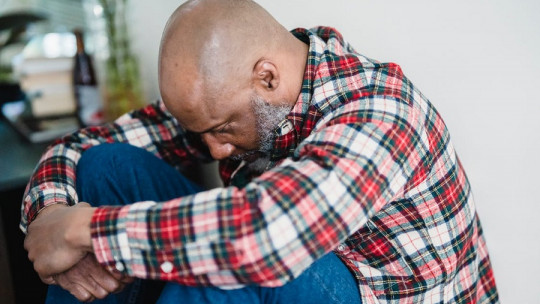
Unemployment is another of the consequences that the pandemic is unfortunately leaving, creating a situation of great wear and tear among the population. At the beginning of the pandemic, we all thought that it would be temporary and that a few weeks of confinement would resolve it. But the truth is that the reality is different, and it is going on for too long.
In this context, many people have lost their jobs, and that also has psychological consequences.
The psychological impact of unemployment
At first, the loss of a job goes through a phase of shock, followed by a certain enthusiasm, because at first you think about resting and dedicating more time to the things you like, in a mini-vacation. But Then comes the decline, the loss of motivation, the hopelessness… This process can be triggered by various psychological meanings, as we will see.
1. Loss of routines and references about what to do
Work gives security, stability, it gives us a routine, it helps us have a schedule, an organization… which is very good for our mental stability.
Routine helps create habits, and with the loss of a job, those habits are also lost and we can begin to acquire less healthy ones.; For example, going to the bar more, drinking or smoking more, promoting addiction to video games, isolation because it reveals a certain deterioration in family and social relationships…
2. Wear and tear of self-esteem
All these consequences also affect self-esteem. Because many times, in social gatherings, when others share work topics and anecdotes, they nevertheless feel that nothing has happened to them in their lives. All of this generates negative thoughts, unemployed people enter into constant comparisonsand they undervalue themselves, they see themselves insecure in conversations, and they withdraw socially.
Some sloppiness may also occur in the image; They neglect grooming themselves, dressing in ironed clothes… all of this also contributes to psychological discomfort, which damages self-esteem.

3. Effects of unemployment stress
On the other hand, We must not forget that unemployment is linked to the limitation of material resources. This has a notable psychological impact that is quickly expressed, especially in the middle and lower classes, that is, the majority of the population.
The importance of going to therapy
Many people with psychological problems due to unemployment are slow to ask for professional help, and when they go for a consultation it is because they have some symptoms of anxiety, insomnia, digestive problems, or even unjustified physical fatigue.
Why is it good to go to therapy? When a person finds himself in this situation, we have to work with his thoughts. We must avoid entering into these comparisons, in undervaluation… We must learn to value and love yourself again, working on motivation and channeling it towards a new job search, new projects and dreams, and working on expectations.
Practicing exercise and establishing a schedule are some very important tips for this type of situation. Maintain the habits of when we went to work, take care of yourself, groom yourself, maintain physical and mental activity, and rest well. It is also very good to meet another person who is in the same situation, to share routines, as well as positive energy.
It doesn’t have to be something negative. Many people take advantage of this situation to reinvent themselves, to propose a change of sector, a job improvement, or even set up a new business, a project with which they regain their enthusiasm, even greatly improving their life before unemployment.
In these situations there are no culprits or rivals, we must channel that anxiety into positive things, leaning on family and friends. Furthermore, you should not isolate yourself, remembering that most people have gone through this situation at some point in their lives and seek professional help, when needed.








